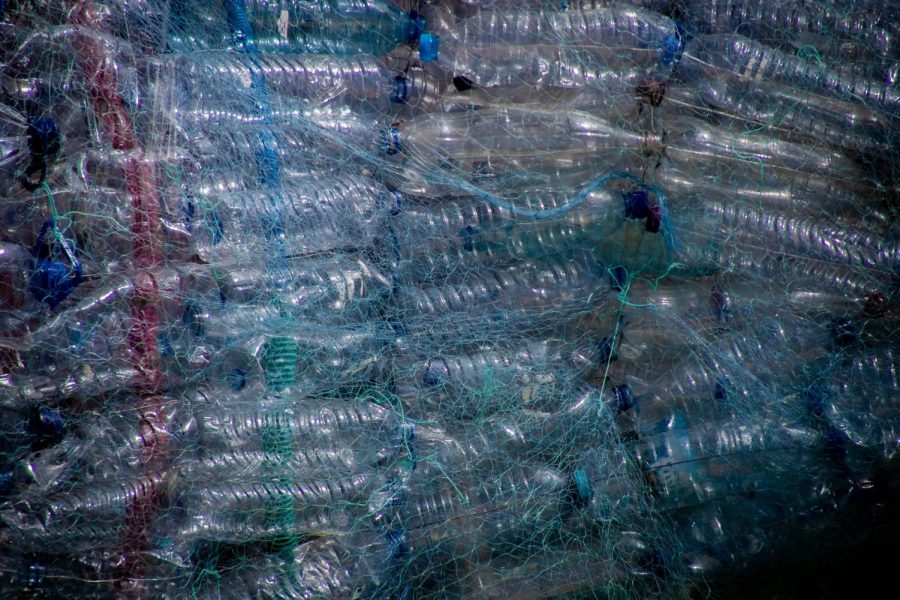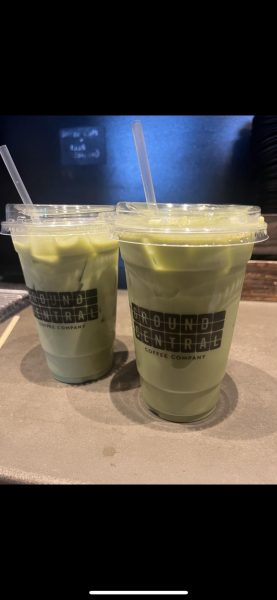Why Don’t We Recycle at LHS?
The amount of plastic pollution is currently at an all-time high, and according to scientists, it is only going to increase from here unless there are some drastic measures taken. Most people’s immediate response to mitigate the issue is recycling. Recycling is an effort that society has to do collectively in order for it to be effective, especially large institutions such as schools. There have been rumors that LHS does not recycle anymore, so are they true?
Recycling is not just putting all plastic, paper, and glass in a blue or clear bag, throwing it to the curb, and thinking your moral duty has been done for the week. Recycling is specific. This is because only certain types of plastic can be recycled, and if one recycles all the plastic he/she encounters, then it is just a waste of time. Dirty plastic, coffee cups, straws, and plastic bags, to name a few, are items commonly put into recycling bins, but in actuality, they are not recyclable. Additionally, recycling is a task that one has to be committed to doing. “There was a time we had a very active environmental club, and they had a committed number of students who were interested in having [recyclables] collected and so they ran it,” said Joseph Rainis, LHS principal. He added, “The only reason why we don’t have a continuation of that is because it was difficult to maintain the building-wide momentum and enthusiasm for the recycling. I’d be interested in reviving it tomorrow, but what we need is a community, a school community, committed to beginning it and carrying it on and making it something that’s part of who we are. And, we have had people who have come through and have had that idea, and they were able to generate enthusiasm for it, and, therefore, it built on the number of people who were committed to helping out, but, over time, interest kind of went away.”
Most importantly, what most do not realize is that recycling relies on money: “If there’s a demand in the market, then recyclers and companies will pay for your post-consumer recyclables. But without a market demand, those recyclables are almost useless,” states National Geographic (nationalgeographic.org). With that being said, cost definitely plays a part in why bigger facilities choose not to recycle or find it harder to do so to the fullest extent. Rainis stated, “Some of the things that you need to do when you are recycling are not easy to organize and have come together consistently. For instance, a recycling company willing to come to your building to pick up your paper and to pick up your metal, all of those companies you see out there, they charge for that service. Everything that is associated with Lynbrook High School and Lynbrook Schools are taxpayer money, and our number-one aim is providing for the students of the building[…] Recycling is a great idea, and we should be doing it, but is it something that we can be comfortable spending taxpayer money on when it’s for a cause other than the mission of the Lynbrook Public Schools?”
Overall, recycling is an idea that sounds good in theory, but is it really worth it? Amy Ezagui, Marine Science teacher, stated, “Since so much of the plastic that we use in our everyday lives is NOT recyclable, I think our resources and time would be better spent educating students and teachers on alternatives to plastics. Examples would be reusable water bottles, straws, and shopping bags and limiting single-use containers for food.” “I think everybody is very interested in the idea of recycling, but there is a significant difference between the idea of recycling and getting down and dirty with recycling because recycling is a down and dirty gig,” said Rainis. Ezagui added, “Some recycling is effective, but only 19.9% of plastic is actually recyclable. More education needs to take place to teach people about what types of plastic are recyclable and which are not. Since so much of the plastic that we use cannot be recycled, most of it is dumped into the landfill. The plastic that is not dumped into our own landfills, is exported to other countries.” Although, since China outlawed the imports of foreign plastics in early 2018, the amount of plastic that ends up in landfills has only increased. “So much of what people think is recyclable, is really not and becomes what is called ‘wishful’ recycling. It is often dumped into landfills or bundled together and shipped to foreign countries. The amount of resources that are wanted in collecting and sorting these items is ultimately what makes the recycling not worth it,” Ezagui stated. So, since recycling is debatably not worth the hassle, should Lynbrook still increase its efforts towards being more environmentally friendly?

I am part of the Class of 2021 at LHS. I am in Key Club. I have a dog named Bandit, and I went to elementary and middle school in Queens.






















